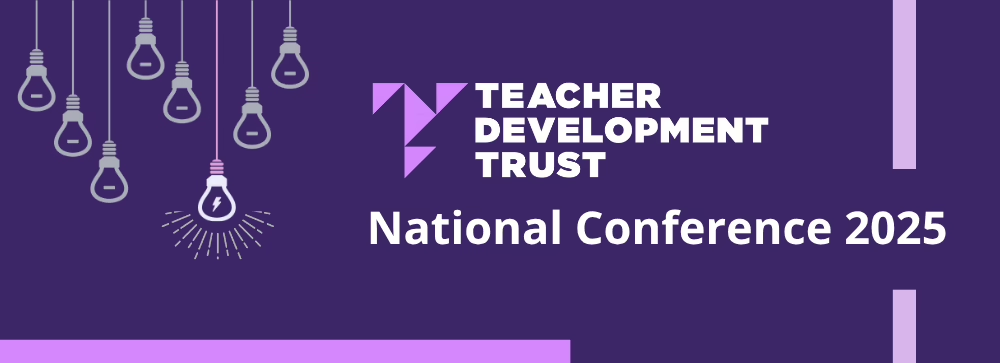In this guest blog from TDT Partner L.E.A.D Teaching School Hub, Colette Duggan explores what leaders can do to make sure NPQs and other professional qualifications have the most impact back in school.
The long-awaited confirmation of NPQ funding was finally released at the end of the summer term. With the summer holidays sandwiched nicely in between the release of funding and the deadline for registering, there isn’t much “school-time” to pause and reflect on how these qualifications could benefit your setting, but we implore you to.
Colleagues have been successfully completing NPQs since their introduction in 1997 for Headship, then the widening scope of NPQs in 2017, 2021, 2022 and more recently in 2024, the NPQSENCo. As we speak, the NPQs are undergoing an 18 month review.
Like everything in education, these are not static.
But what is the constant?
When can Qualifications turn into Impact within Schools?
The most successful candidates are the ones who hail from a setting in which the climate for CPD is most established; where the culture of rich conversations around continuous improvement are abundant; where learning never stops and (calculated) risks are taken.
Anyone can complete a qualification, but it is its implementation that sets schools apart, and effective implementation is collaborative.

At L.E.A.D. Teaching School Hub, honest feedback is at the heart of what we do. We seek this through a variety of means and meticulously analyse responses. Both Programme Member, and Facilitator feedback emphasise how important the support of the setting is when completing a qualification. An NPQ, at its heart, is CPD but we all know that a one-size-fits-all approach to CPD in schools was never effective. The focus needs to be on individual staff, and individual needs.
Therefore, as an organisation, we pulled together the feedback from leaders, facilitators and programme members past and present to help design our NPQ launch for cohort 4b: an event that brought together Programme Member with School/Trust Leader to explore how to maximise the NPQ potential.
We combined this with research findings, particularly Kraft and Papay (2014)’s research which demonstrated that teachers who worked in more supportive professional environments improved their effectiveness more over time than teachers working in less supportive contexts.
Our key messages to leaders are centred around L.E.A.D. Teaching School Hub’s core values:
Agile:
Successful settings are outward facing. It may be that a Programme Member, through a school visit, an online module, or a coaching conversation experiences a different perspective or way of doing something.
We urge leaders to empower individuals to explore this in their setting, even if merely through a conversation. Open minds and a willingness to engage in meaningful dialogue are key.

Ambitious:
The above relies on settings being open to challenge in order to continuously improve. Developing colleagues will enable them to contribute strategically to organisations, and this may mean thinking or doing things slightly differently.
We encourage leaders to support Programme Members to find a ‘buddy’ or ‘mentor’ either at school or within the programme to connect with to drive thinking.
Research demonstrates how the likelihood of achieving one’s goals are amplified with community. Having a sounding board, a champion, a cheer leader and a critical friend can make all the difference.
If this could be built into a wider model of coaching, professional growth is inevitable. Similarly, if several colleagues are completing the same qualification, a shared language is generated which allows them to collaborate and work together much more effectively.
We need to set high expectations for participants. We encourage leaders to expect a shift in thinking or behaviour. If no change occurs, the time is wasted.
Which links to…
Aiming for Impact:
In order to have honest conversations about a shift in thinking or behaviour means that there needs to be an honest conversation before the programme starts. Encourage open conversation – why this colleague? Why now? What is the potential that you see in them? Where are the development needs? How does their development align with school development? It is this clarity that brings real depth and engagement to the programmes.
Similarly, in order to have impact, the qualification needs to be a priority. This will only happen if there is relevance. Is it the right NPQ, at the right time, for the right colleague? If so, it should embed itself seamlessly into performance management, school improvement plans and wider CPD priorities.
Settings need to avoid CPD fatigue – the continual introduction of differing programmes, qualifications, fads and approaches that aren’t seen through effectively. Do less, but do it well, and make it a priority! This will enable opportunities for setting specific dialogue, collaboration, and projects, thus facilitating professional growth that will directly impact the young people the colleague serves.

Actively Inclusive:
Fundamentally, we encourage leaders to be positive. On these courses, you engage with Programme Members from all ages, stages and types of setting. As leaders, we should encourage learning from all contexts – a positive mentality surrounding this makes all the difference.
Accessibility is key. As leaders, we need to break down any barriers for our colleagues. Really look at who you are investing in. Is it a diverse range? If not, there may be some reflective questions you need to explore to understand why.
By the end of the qualification, the conversation should come full circle. The same conversations that were ‘why me, why now’ can be had about the next generation, by the Programme Member.
In this sense, a type of ‘talent pipeline’ is built, as leaders of the future in turn identify and champion the leaders of the future. And through this, the culture of continuous learning…continues.


